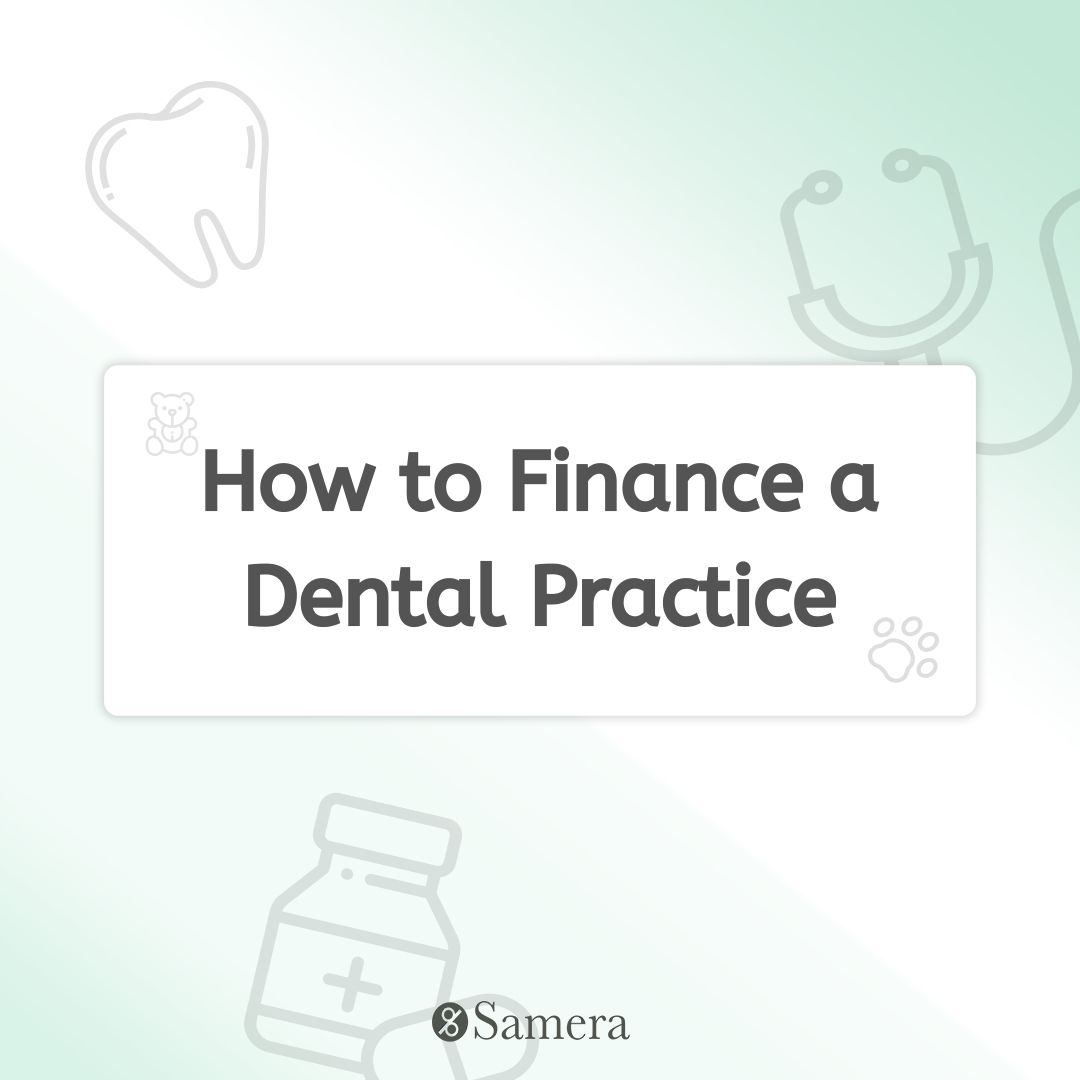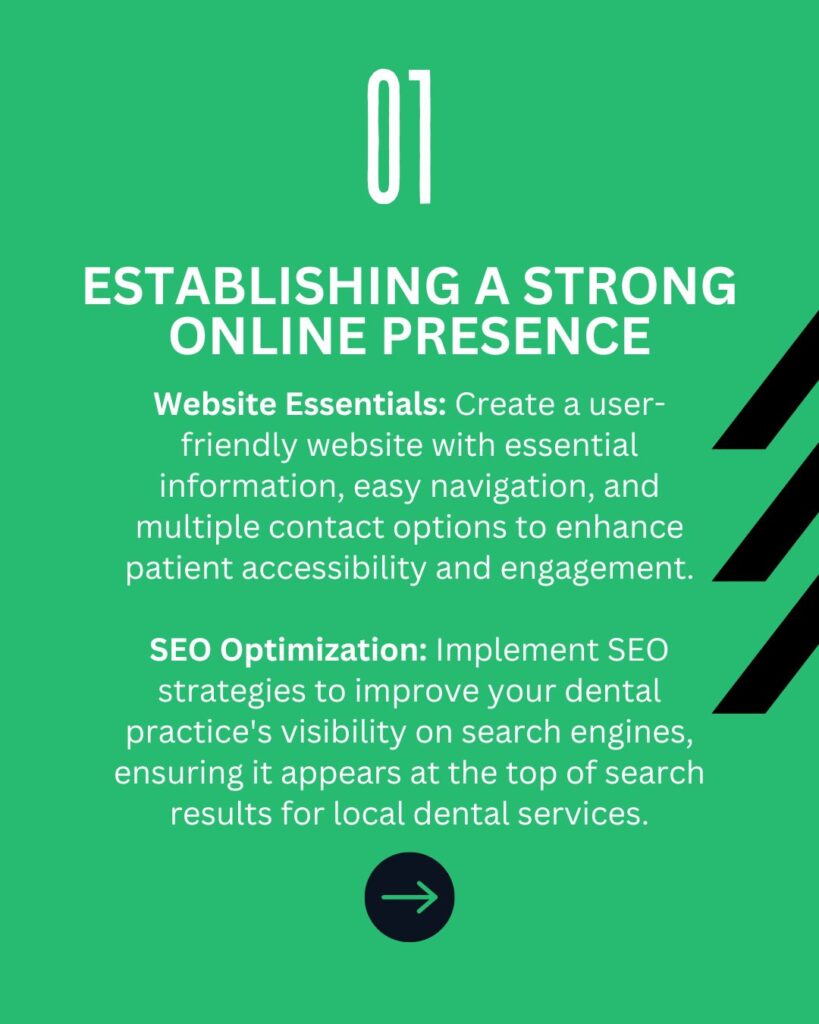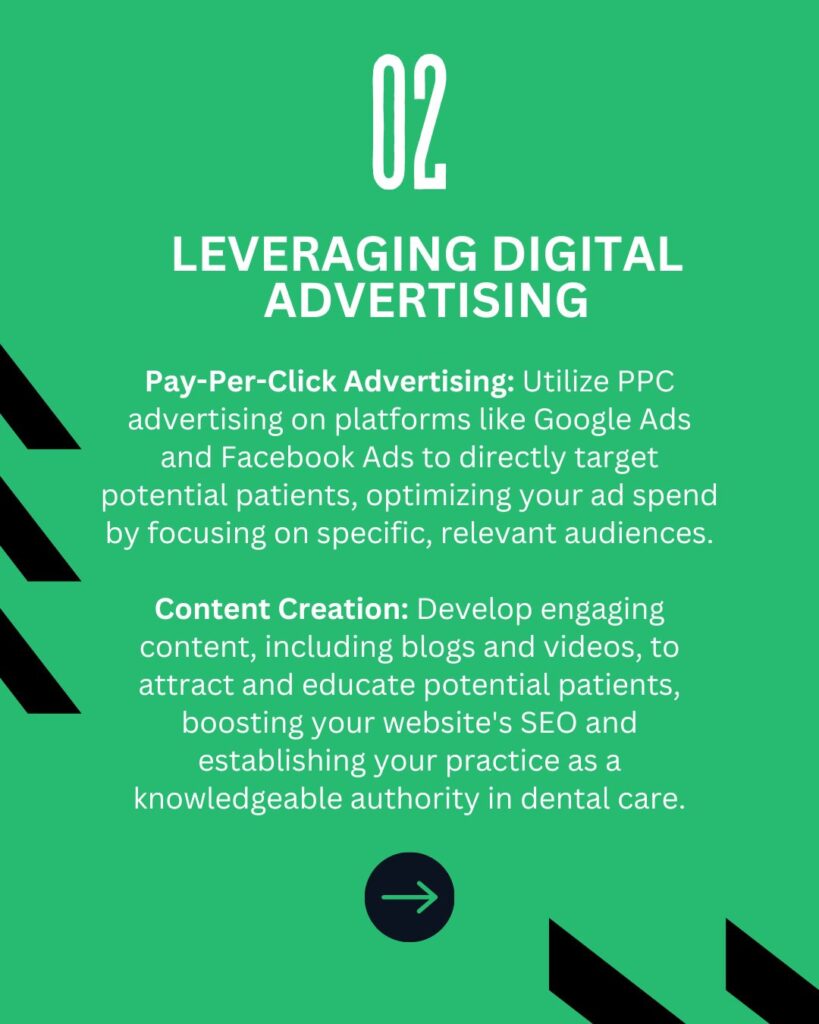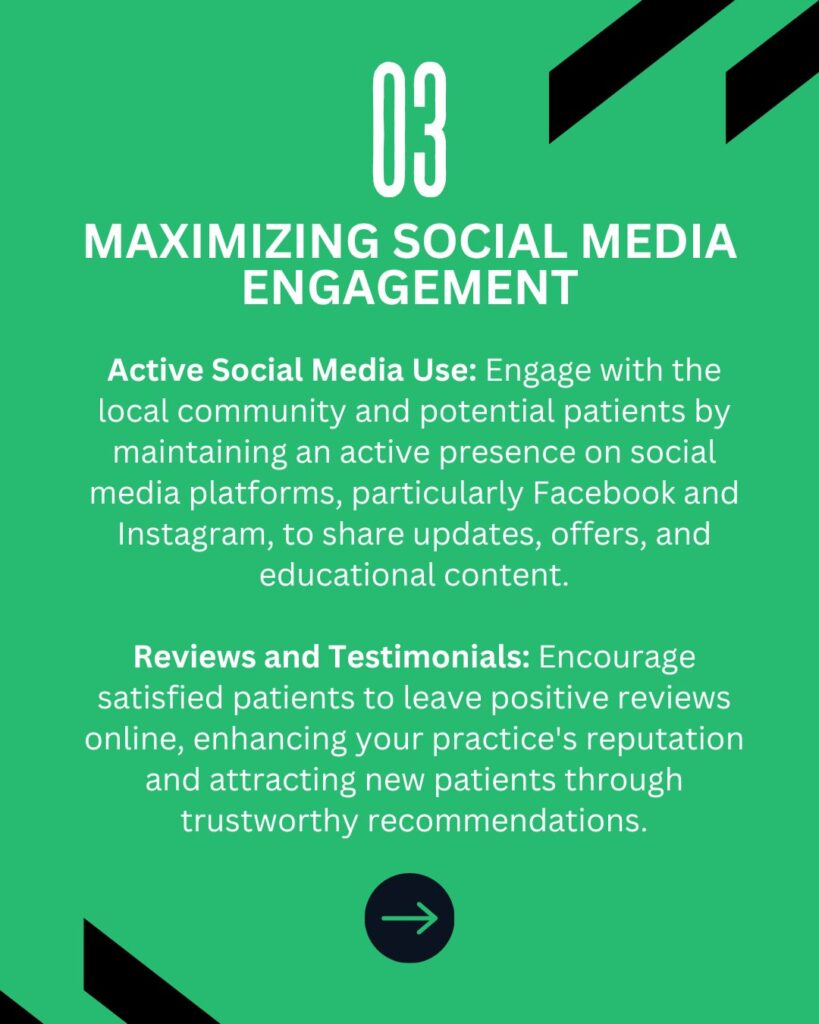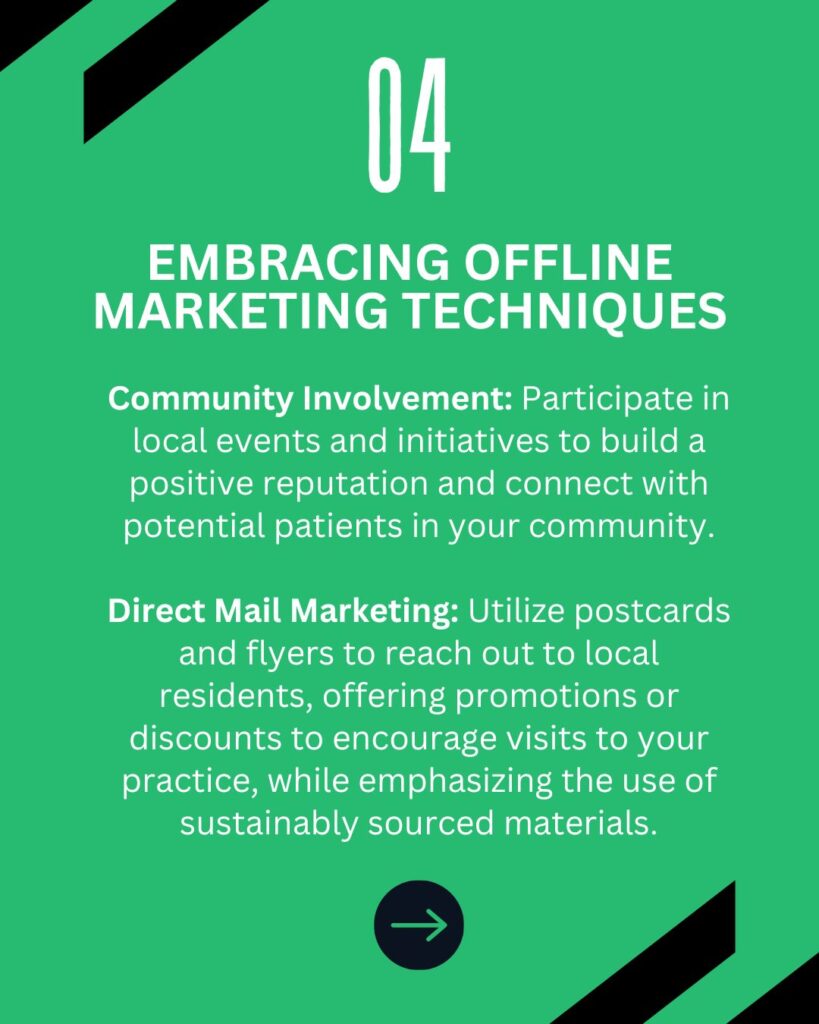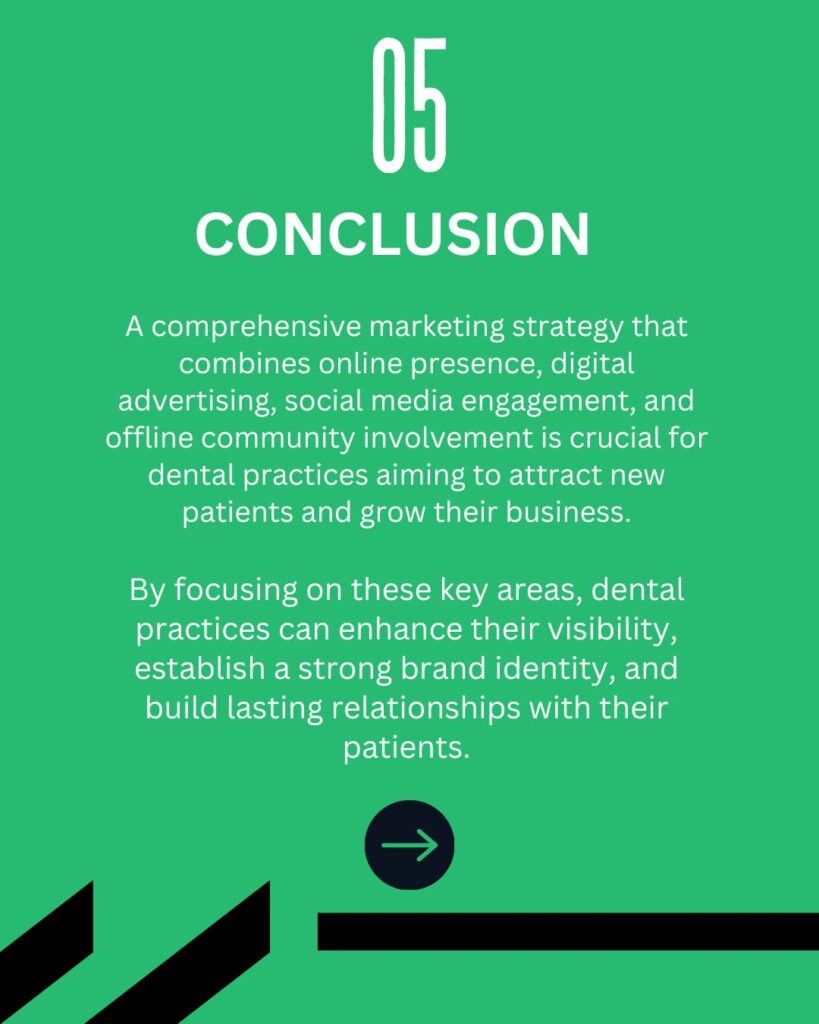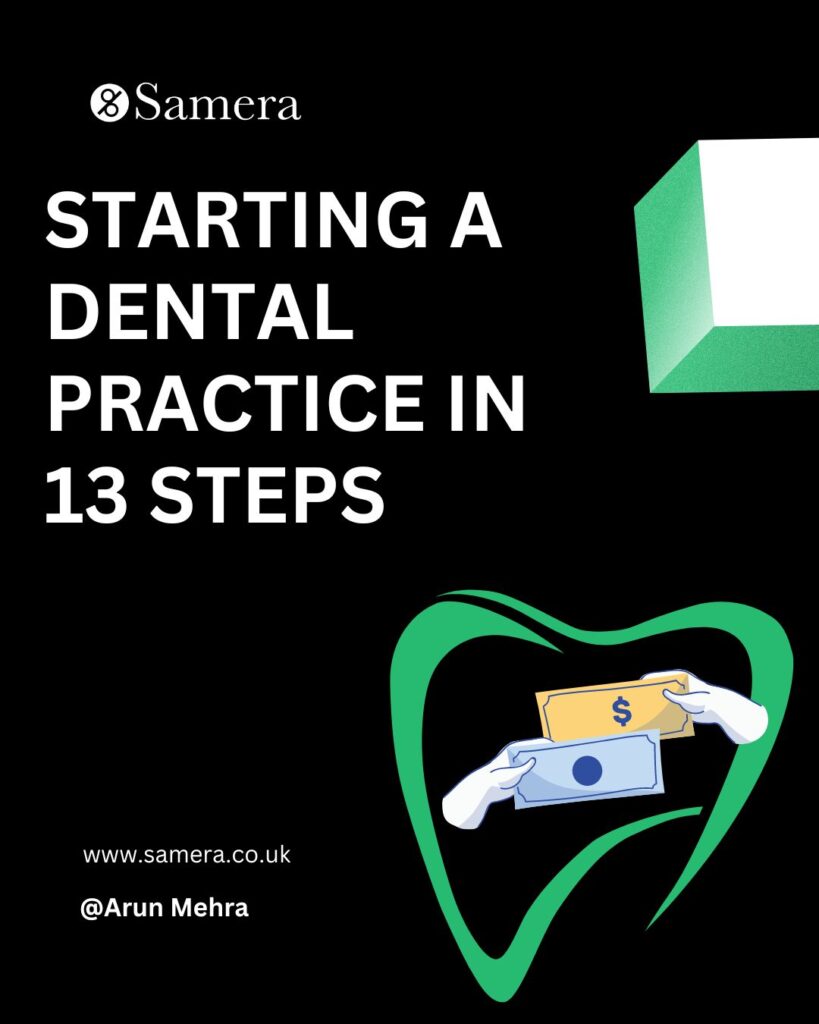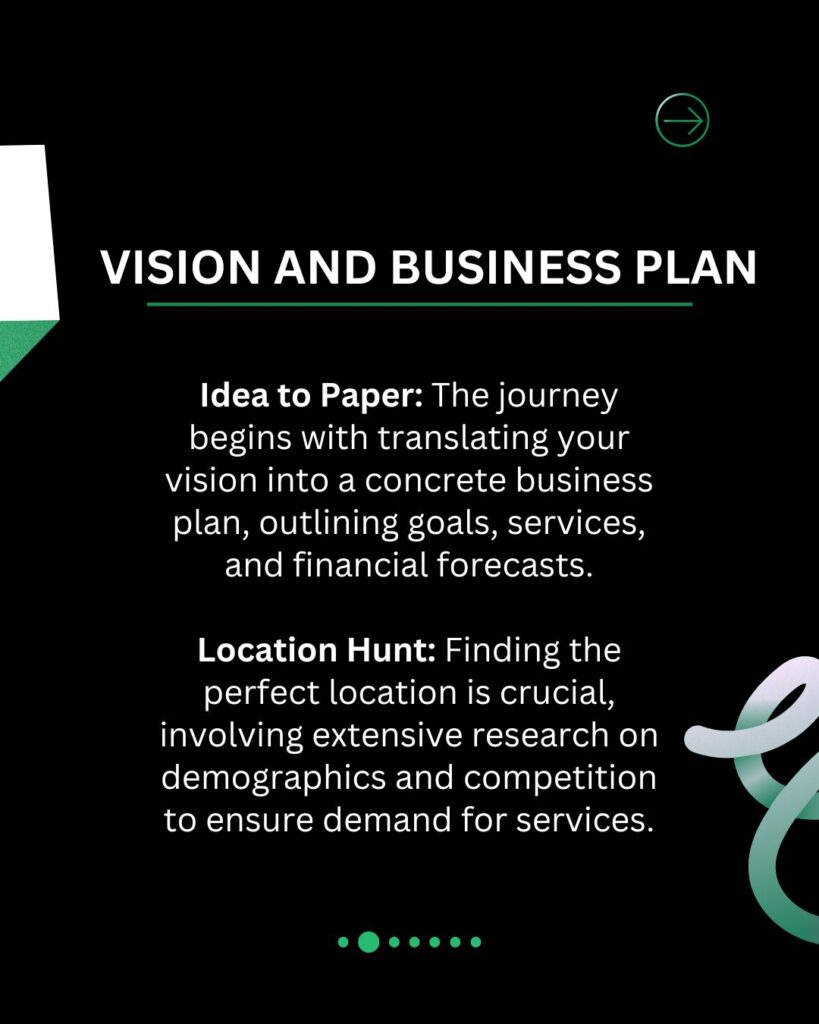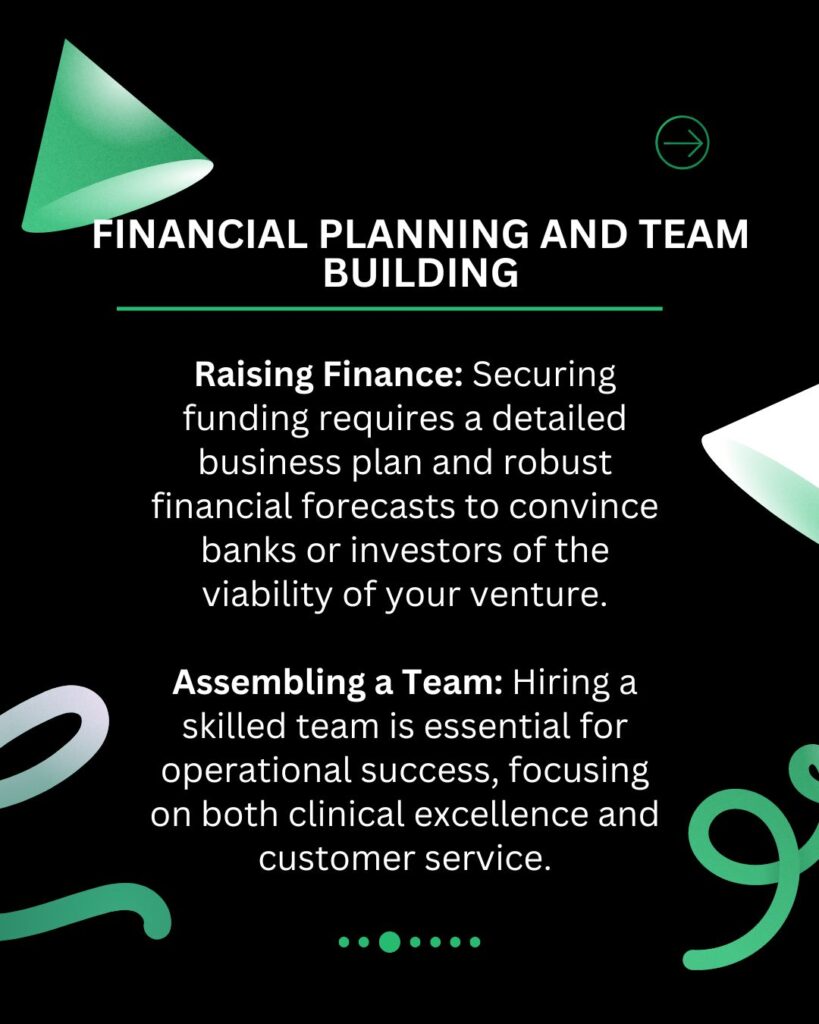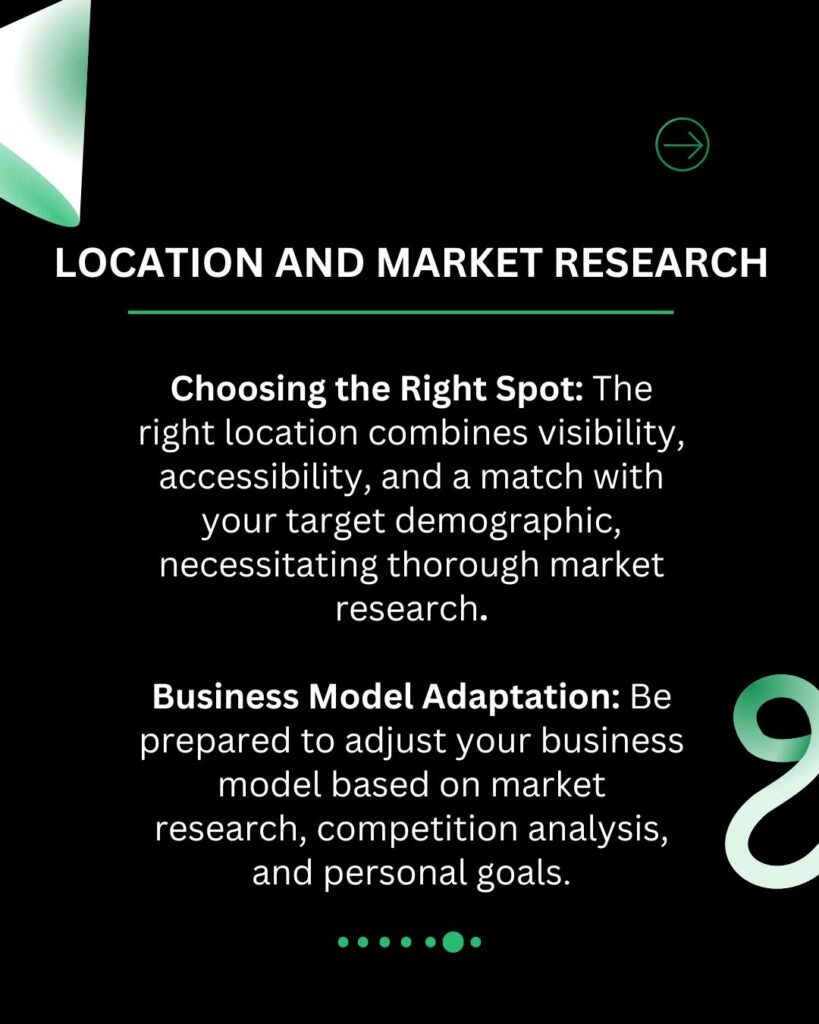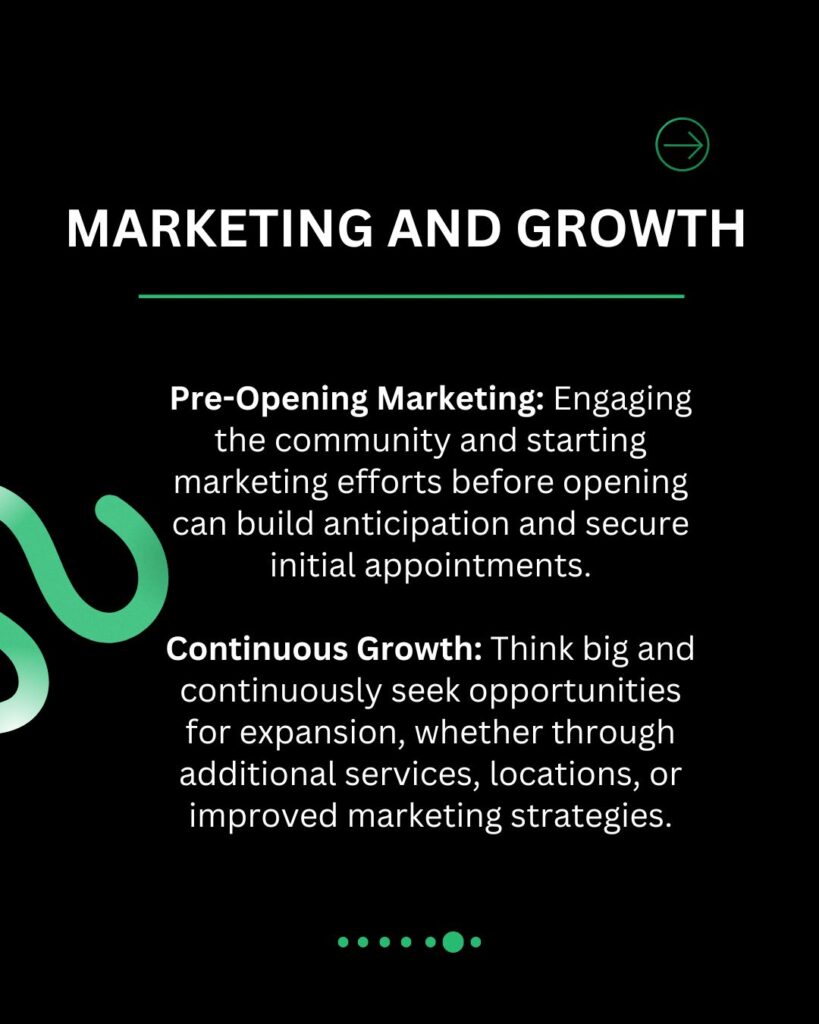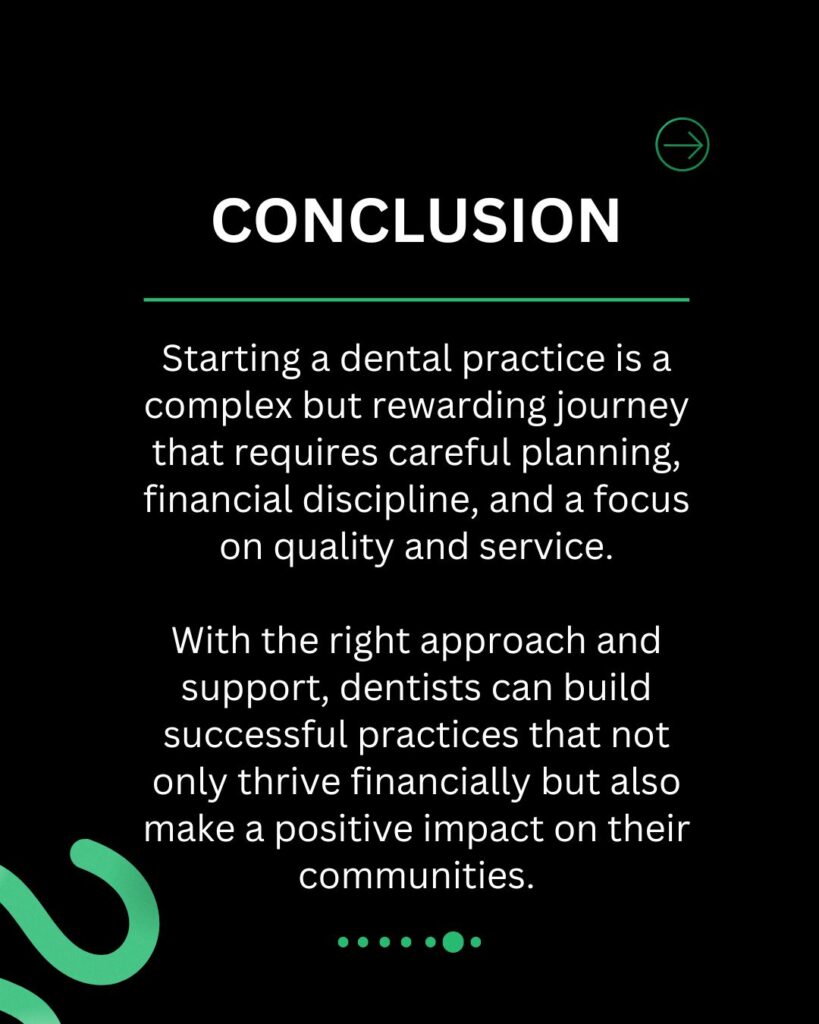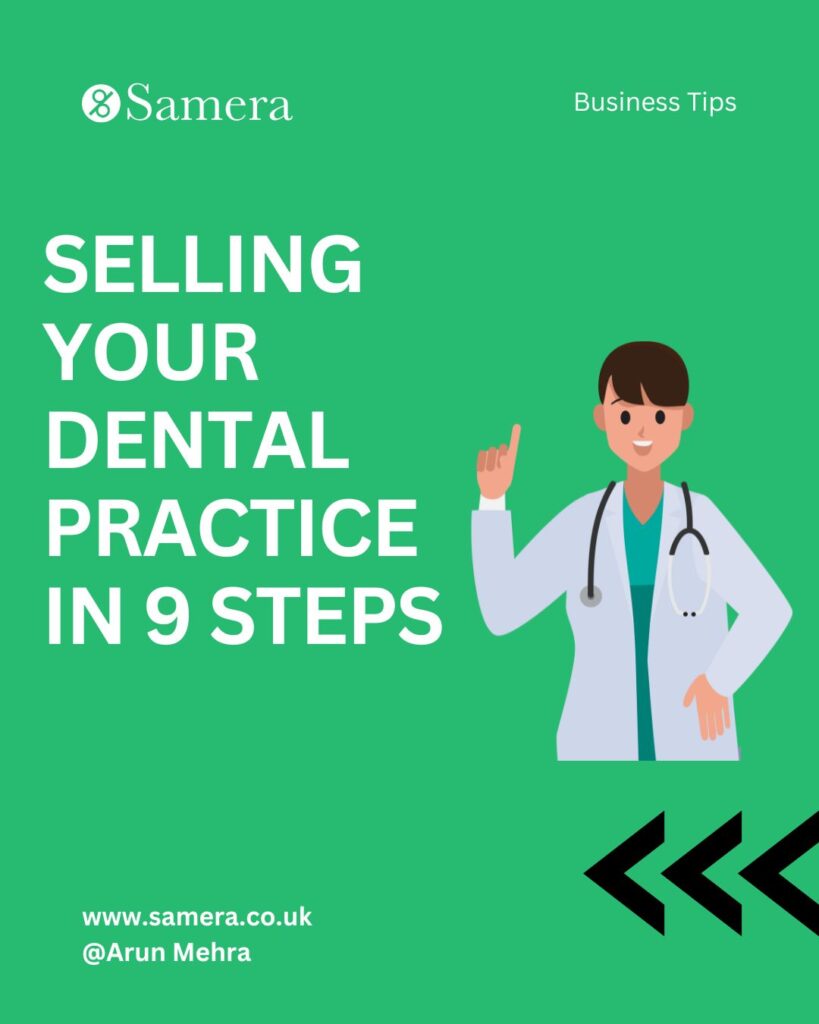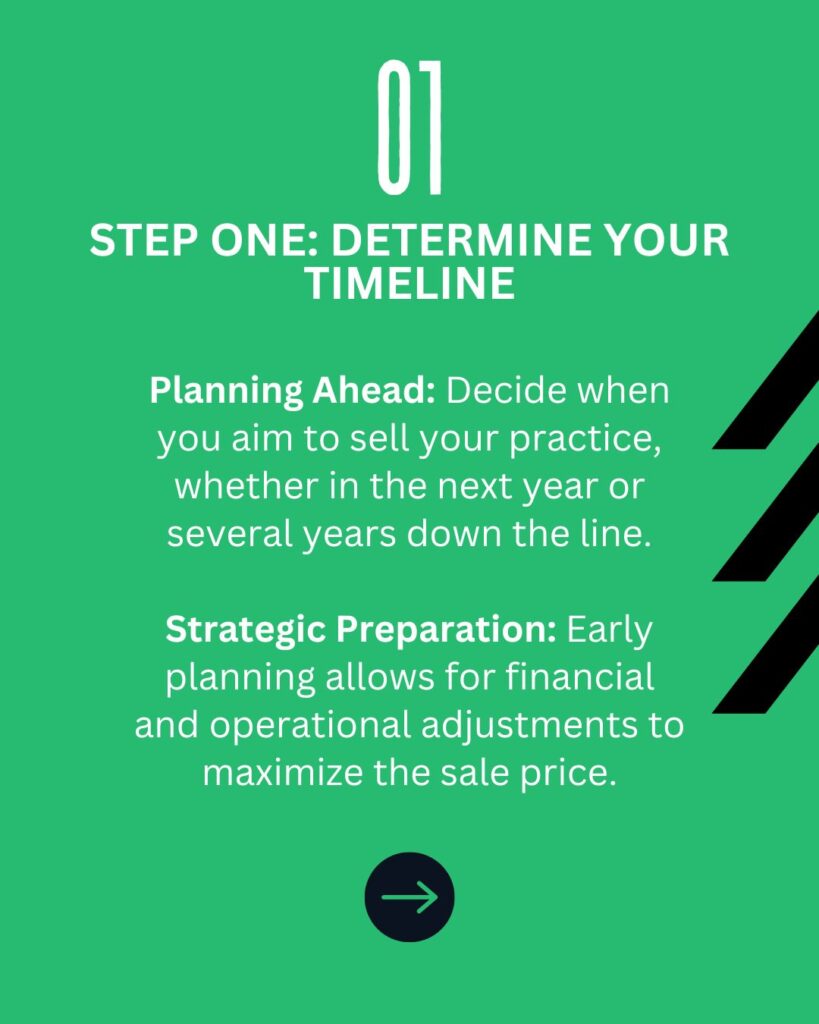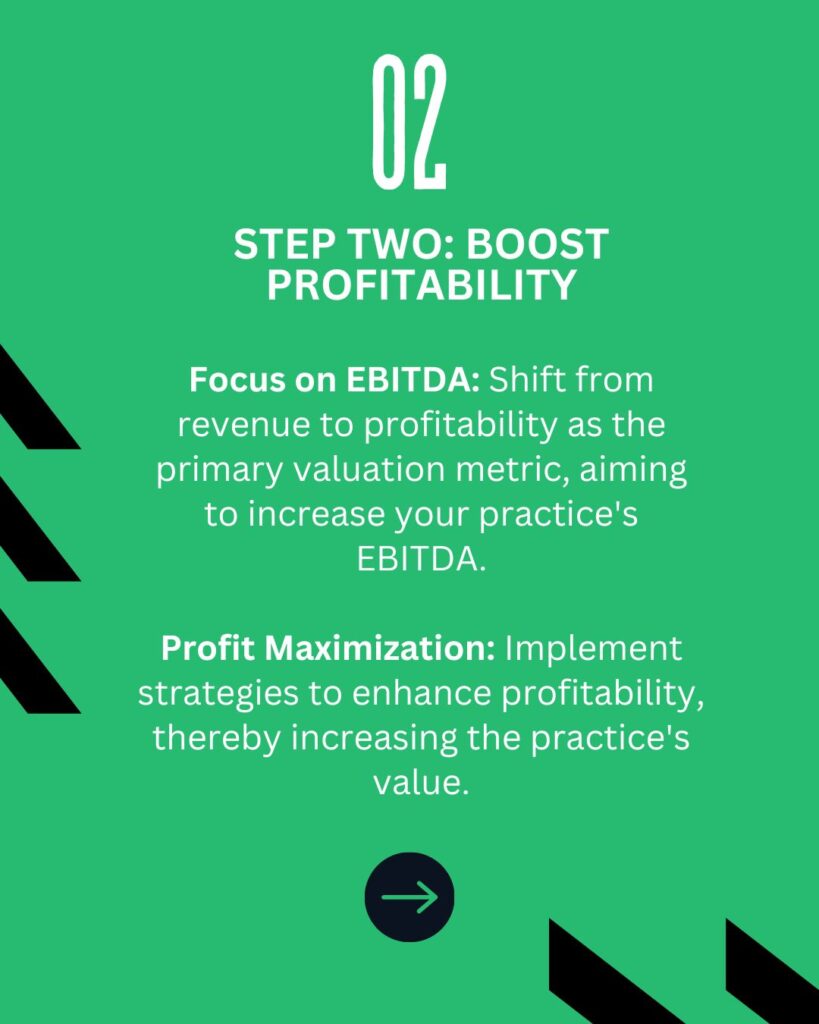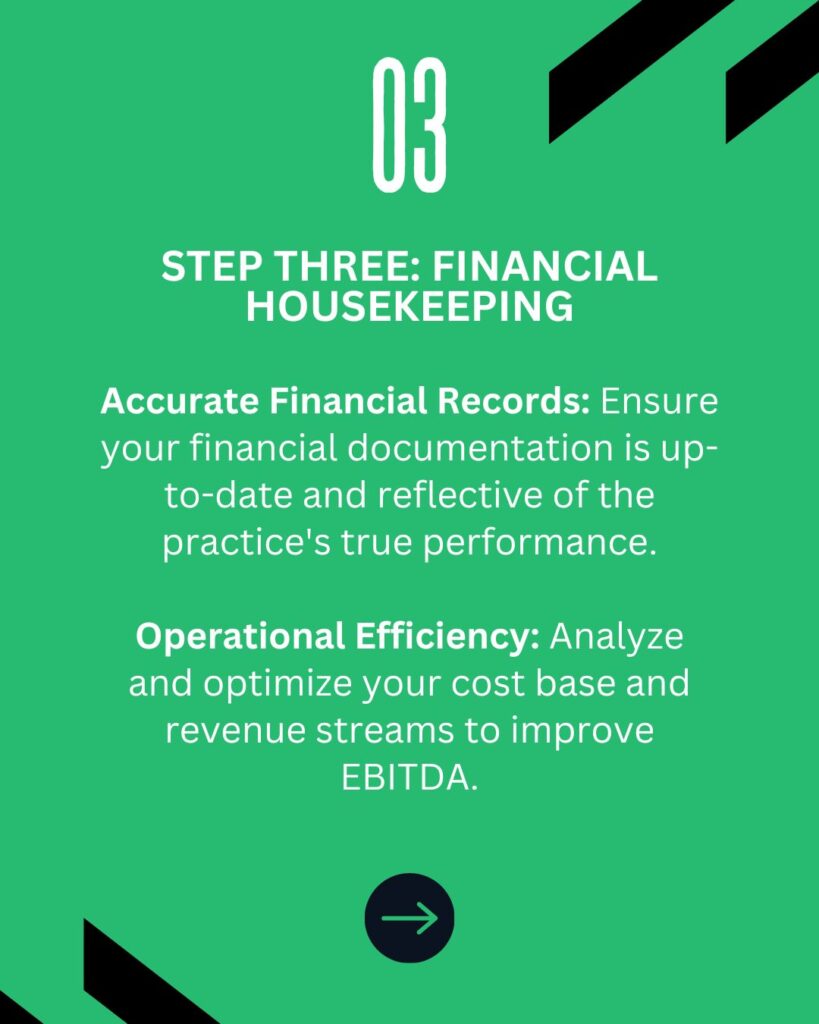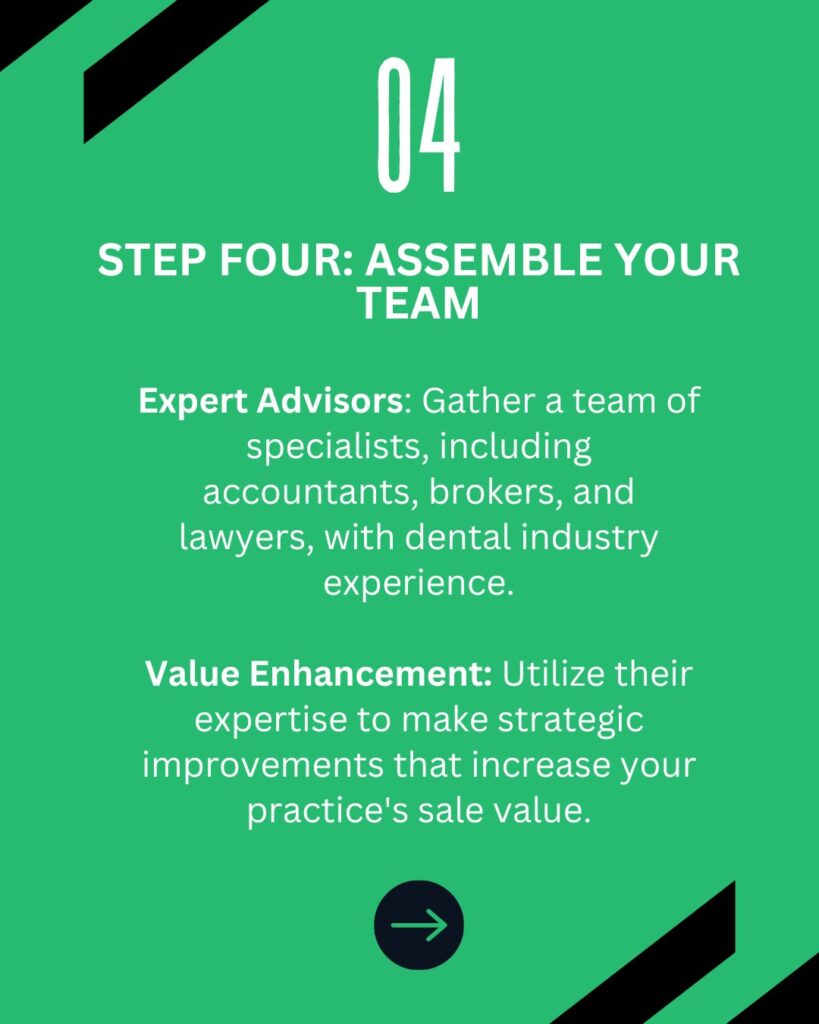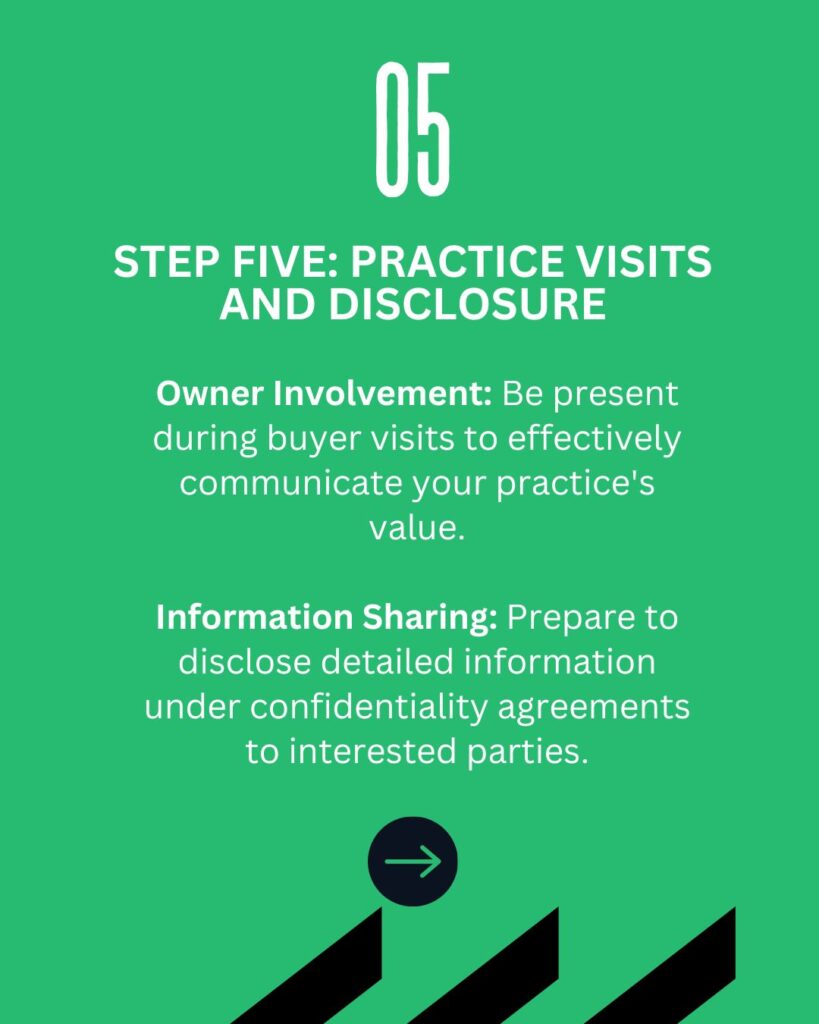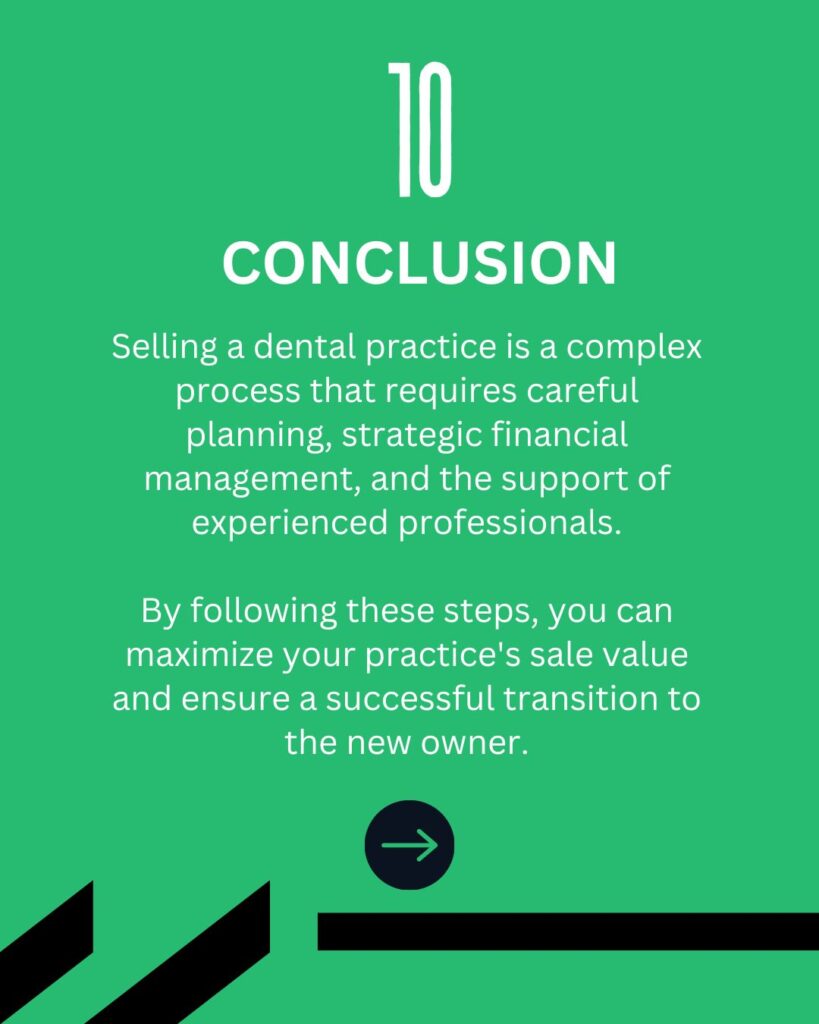As you buy or start your dental practice and as a dental practice grows, there is likely to come a time when significant additional funding is required in order to scale further. This funding may be needed to purchase new equipment, to extend a current practice, or to buy more dental practices and build a group.
While routine services like cleanings and fillings are always in demand, cosmetic dentistry is also widely getting more popular. As demand grows, so does the annual salary for a dentist. Although dentistry in the UK took a hit in 2020-21 (due to the lockdowns), the industry has bounced back strongly.
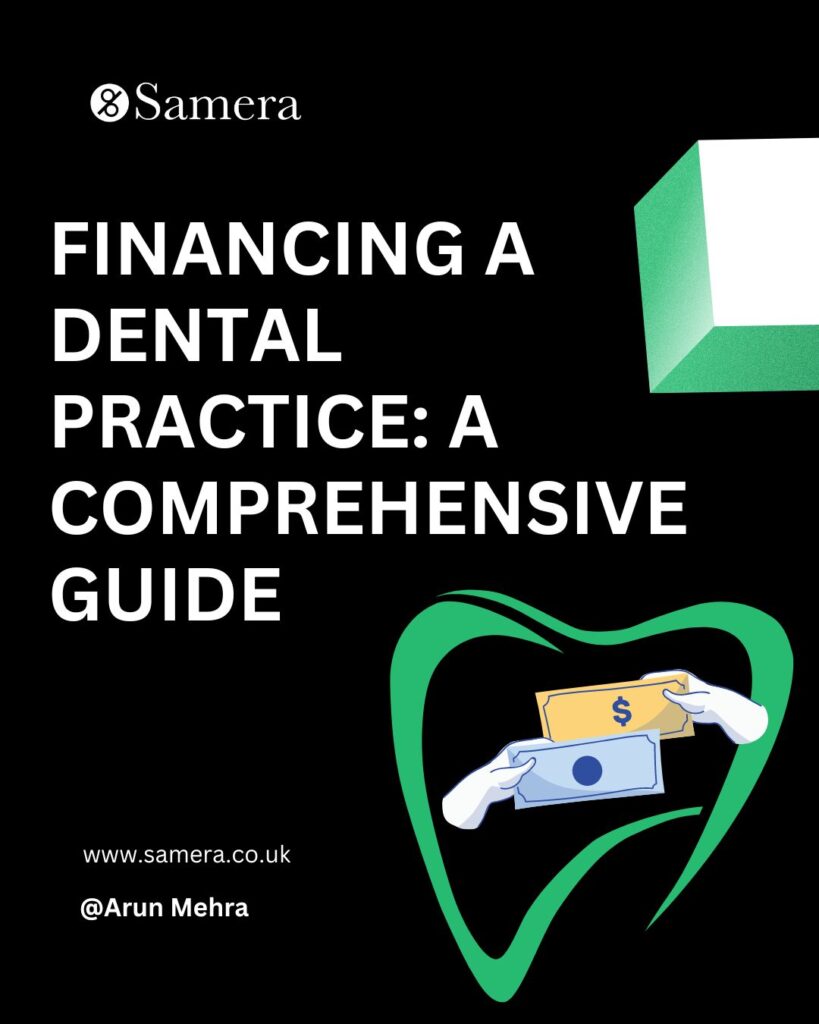
Now is the time to build a dental business.
Buying or starting a dental practice is one of the biggest decisions that a dentist is likely to make and can be a stressful time for all parties involved. The various aspects involved, from creating a great business plan to determining the prime location, as well as many other legal and personal factors, must be carefully taken into consideration before taking the plunge.
There are several rewards and stresses that are associated with building a dental practice, depending on whether you want to go down the private route, the NHS route or a mixture of both. This is why we are here to lessen any burdens on you when it comes to financing a dental practice.
Click here to read more about why dentists want to own their own practices.
One of the most important skills in your personal and business life is learning how to manage your finances. If you can manage this skill well, you will then be on the path to obtaining the finance and business loans you need to build a dental business.
When you are seeking a loan to buy, start or grow a dental practice, banks and lenders will look at your personal finance history to help them ascertain whether you will be a secure and reliable client that can repay the loan.
If you do not currently own a dental practice, your personal circumstances are one of the information sources that lenders will have to assess your ability to manage a dental practice when you acquire one. They will also look at your CV and whether you have undertaken any roles in your current dental practice to gain skills such as management of staff, accounting or involvement with premises issues and the CQC.
Up to this point in your life, managing finances has been just for you and your family, with little scrutiny from others.
To get the finance and business loans required to buy, start or grow a dental practice will require some effort to convince a lender you are worthy of the finance.
Action Plan
- Evaluate the need for additional funding to scale your dental practice, considering new equipment purchases, extensions, or acquiring more practices.
- Recognize the increasing demand for cosmetic dentistry and its impact on the dental industry’s growth potential.
- Approach the decision to buy or start a dental practice with thorough planning, considering business plans, location, legal factors, and personal readiness.
- Understand the various challenges and rewards associated with different dental practice models, such as private, NHS, or mixed.
- Develop strong financial management skills as a foundational element for securing loans and financing for your dental practice.
- Prepare to present a comprehensive profile to lenders, including personal financial history, professional experience, and potential for practice management, to secure the necessary funding for growth or establishment.
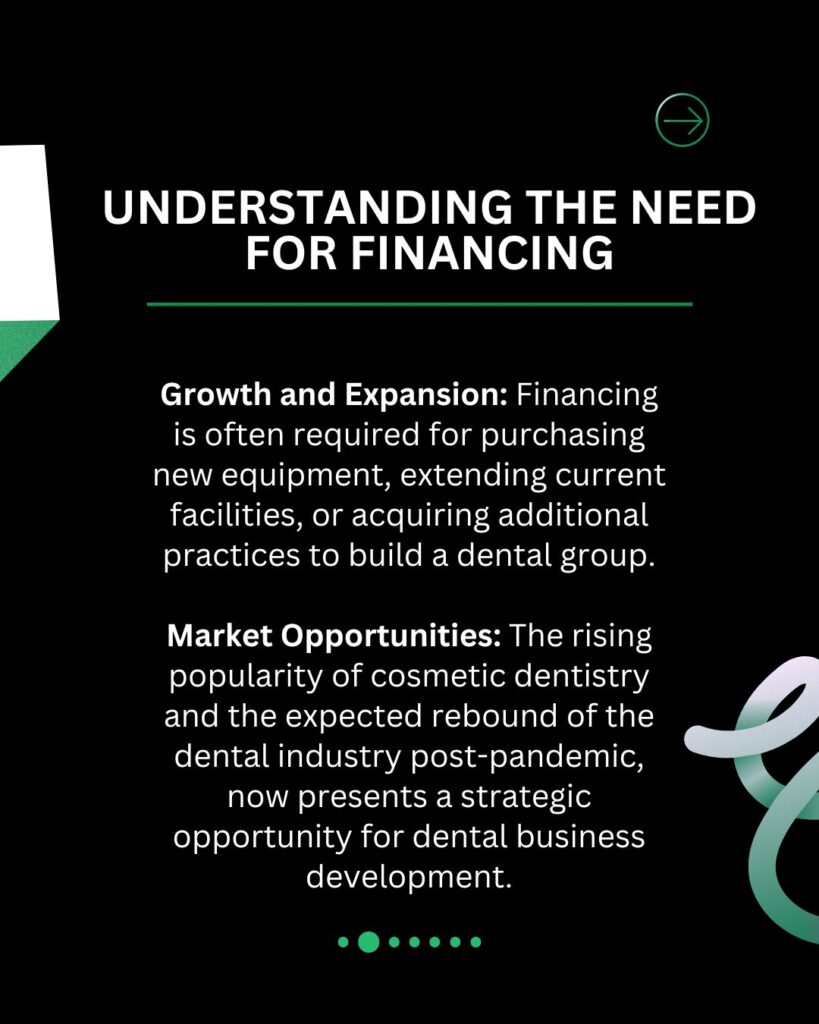
Watch this webinar on how to raise finance for your dental practice.
Click here to read our 11 top financial tips for associate dentists.
Contact us to find out more
How Do You Get a Business Loan For a Dental Practice?
There are a number of banks and lenders out there looking to help you buy, start or grow your dental practice. They all have their own policies and limitations as to whom and how much they will lend.
Most lend on an unsecured basis up to a certain level and, therefore, will want to be sure that you have the skills and the financial ability to repay them when you take out a loan for your business.
When you approach lenders for finance they will want to see a breakdown of your current personal assets and liabilities and how you currently spend your income.
They will review how much you have been able to save, and if you have not saved, they will ask where the money has gone. They will also be looking to see if you have invested in property or other assets.
This is a detailed examination of your income and expenditure and will need to be supported by the provision of bank statements verifying what you have put down as your income and expenditure.
Your bank statements also show how you have conducted your bank account. Many lenders ask for six month’s bank statements to see your income as a Dental Associate.
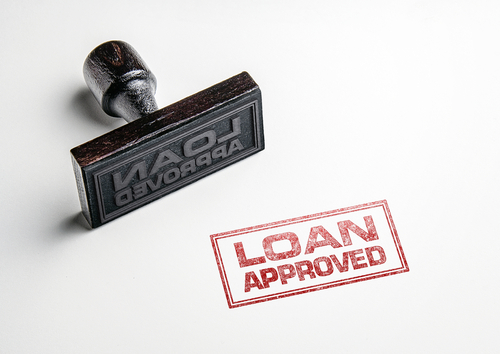
They also look at how you control your funds, and whether you overdraw your account on a regular basis. In addition, they will also want to see three years of associate accounts again to verify your historical income.
Most of the lending for the first purchase of a practice is unsecured, so understandably lenders want to be sure you have a sound financial background and can control your own finances. They want to see a good degree of financial sense and control which will be needed to manage your own dental practice.
If you have a good credit score, experience in dentistry and a well-prepared application, you should have little trouble obtaining a business loan for your dental practice.
Click here to find out more about making sure your loan application is successful.
Applying for Finance for a Dental Practice
Remember that if you’re buying a practice, it’s not necessary to have a particular practice in mind when applying for funding. As long as there is a plan in place.
You can read more about creating a business plan for a dental practice here.
Every dental professional has a different story when it comes to setting up a dental surgery. Take a look at our unconventional story, for instance. Whatever the story is, it’s important to go about securing finance in the right manner.
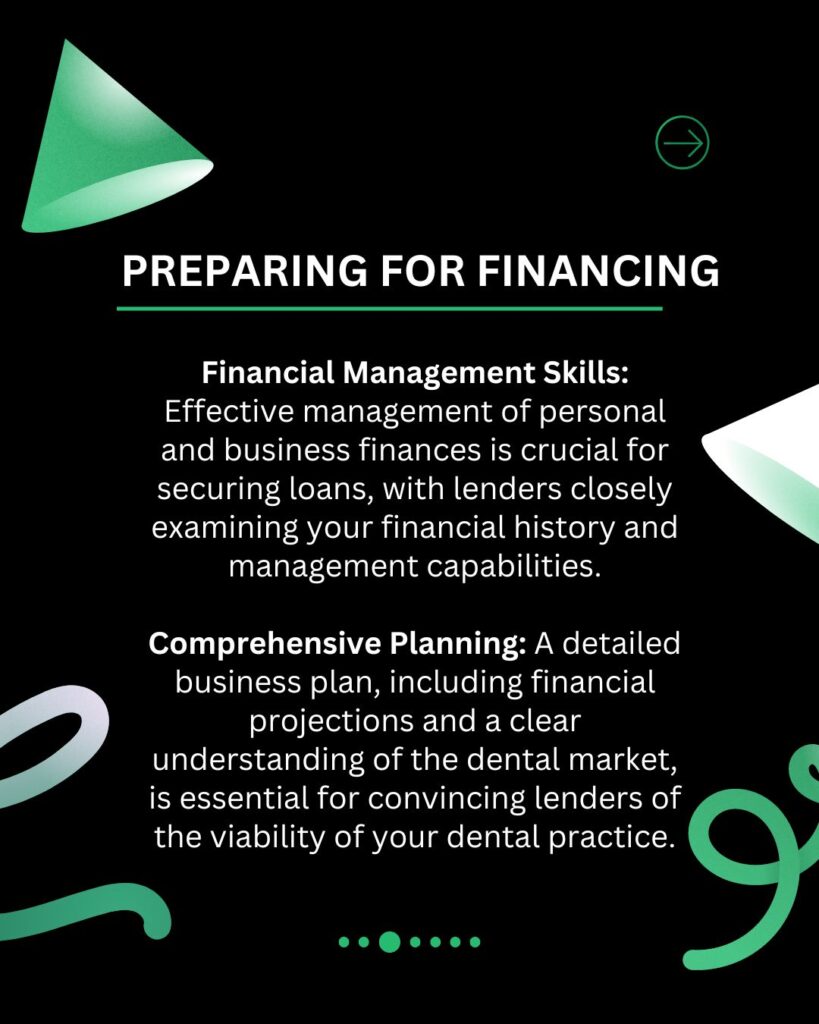
Options for funding a dental practice
From experience, there are three main options when it comes to acquiring funds to buy a dental surgery; one of which is the most common.
- Loans from banks and other financial institutions. This is the most common option.
- Bank of mum and dad. In certain families this may be an option, and repayment arrangements are likely to be more flexible.
- Self-funding. Some dental professionals have the resources to do this. However, it’s not always a good idea to invest the majority of savings as any business comes with some inherent risk attached. Having substantial personal financing in place helps with maintaining a comfortable lifestyle during any lean periods for the practice.
From working with clients over the years, we realise that most often a lending institution will need to be approached. If this is the case, there are certain factors to consider when deciding on the best time to apply for a loan.
Action Point
- Research various banks and lenders to understand their specific lending policies and the amounts they are willing to lend to dental practices.
- Prepare to demonstrate your financial capability and professional skills to assure lenders of your ability to repay the business loan.
- Compile a detailed breakdown of your personal assets, liabilities, and income expenditure for lender review, supported by bank statements and other financial documents.
- Maintain a good financial record, including savings, investments, and prudent management of your bank account, to present yourself as a reliable borrower.
- Consider the three common funding options for acquiring a dental practice: bank loans, family support, or self-funding, each with its own set of implications and requirements.
- Evaluate the optimal timing for loan application, ensuring you have a solid plan in place, regardless of whether you have a specific practice in mind for purchase.
Contact us to find out more
When to apply for a business loan for a dental practice.
Competition for lending is high, so it’s important to have the best opportunity of being in the successful percentile. With this in mind, here is what we would advise.
- Prepare for lending more than 12 months in advance as banks will scrutinise documentation for the previous 6-12 months, and take note of any issues.
- Make sure that everything is in order and that good financial acumen is apparent.
- Have a history of making payments on time and a strong credit score.
- Know what the business aspirations are and whether practice purchase or start-up is the aim.
- Have a team of professionals in place. At the very least, this should include a dental accountant, dental solicitor, and a financial planner for life insurance and disability insurance.
- Hire a commercial finance broker, such as Samera Finance that can help you secure funding on the best terms available.
- Understand the difference between lending. Some banks will offer a conventional loan while others will offer a loan which is specifically aimed at start-ups and small businesses
Make sure that all of this is in place before applying for funding from a lender.
Click here to learn more about applying for loans after COVID-19.
Approaching a lender for the first time
Remember that although lenders are there for the same overall purpose, they all have slightly different policies and processes in place. Some have a specialist team in place to deal with business loan applications, others do not.
It helps to do research when raising finance for a dental practice, and find out as much about the lender as possible. That’s where a commercial finance broker who knows dentistry is worth their weight in gold, as they know which lenders are most suitable for which clients.
Whichever lender is chosen, they will want to know that they are providing finance to a reputable borrower and that they can rely on the money being repaid as agreed. With this in mind, any professional who is looking to invest in a dental surgery should be prepared to prove their financial reliability when they visit a lender. This is likely to include:
- Proving comprehensive bank statements for at least six months (professional and personal).
- Providing associate accounts for at least three years, to verify income.
- Providing evidence of regular saving.
- If there is no regular saving pattern, there should be proof of what earnings were spent on. This could include professional expenses, or home improvements. It’s important to be able to show wise spending choices.
It makes sense that banks, and other lenders, want to verify that borrowers are a good risk. These loans are usually unsecured; so they want to be as sure as they can that they will get the money back.
When speaking to clients about their lending situation, we always stress how important it is to be able to show that they are proficient at managing money, and ideally have significant savings or investments.
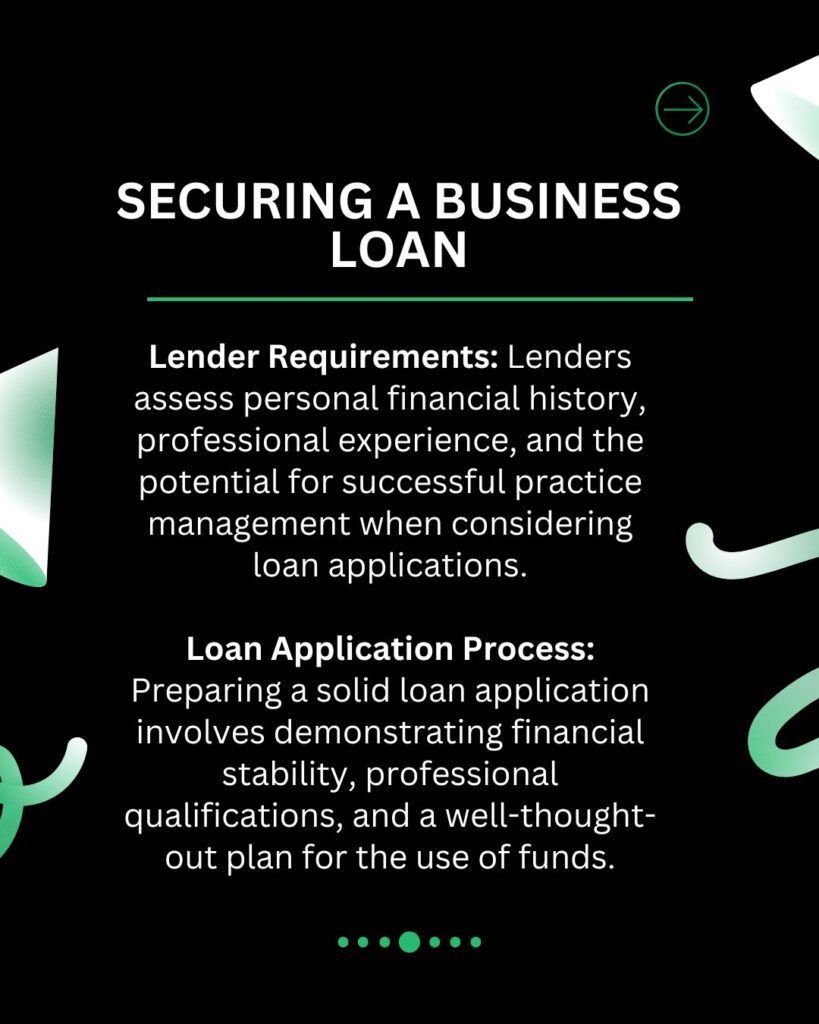
Please click here to learn more about why your loan application might have been denied.
Do you need to provide security for a business loan for a dental practice?
What will financial lenders assess?
Getting qualified for a loan can be a daunting experience. The process itself is non-binding because the information you provide has not been verified.
Any dental professional who is looking to finance the purchase of a dental practice usually needs to have a deposit of at least 10%. When approaching a lender for the rest of the money, there are certain factors they will consider when making their decision.
- The history of any earnings as an associate dentist.
- Management of personal finances.
- Living situation of the applicant. Is the accommodation rented or owned?
- Career in dentistry and level of management experience.
- Ability to repay any loan that is provided.
- Any personal savings that are in place. Showing a propensity to save rather than make rash purchases is an indication of being low risk for lending.
- Evidence that tax payments are up to date.
- The personality and character of the applicant.
Contact us to find out more
Lenders look for a few key aspects of your application in order to confirm whether you are a worthy lender. These aspects include:
Credit
Credit history and activity have a major impact on loan approvals and will heavily influence whether you get approved or not. It is also important to know that the lowest rates available are usually only obtainable by borrowers with high credit scores.
Lenders use your credit scores to assess the reliability of you as a borrower. It will help them assess the risk being taken when providing you with financing.
In addition to looking at your credit score as an indicator, they often review your payment history which they consider to be a strong indicator of the likelihood that you will make timely repayments in the future.
Debt
Lenders often use a debt-to-income ratio that compares the amount you earn to the amount to owe. This is to ensure that you will not be over extended with your new loan repayment. Debt-to-loan limits vary depending on what type of financing you need and the type of lender you go to.
Click here to read more about dealing with debt as a dentist.
Income
In order to apply for a loan your lender will need to review your income, the same can also be said for your employment history for most types of financing that you will apply for. Not having steady work or a steady source of income for the last two years could impact your eligibility for getting approved for financing for your dental practice.
Lenders will often call your current employers and verify your salary. If you are self-employed, lenders will look at the adjusted gross income on your tax return to assess if your business is making any profit.
Assets
Depending on what type of financing you need for your dental practice, you may need to secure your loan with assets to put up as collateral in case you default on any repayment on your loan.
Do banks lend only on projections?
Contact us to find out more
What banks are looking for in a dentist
Unless you are being represented by a business advisor, or a professional who is qualified in dental practice transactions, you will be expected to provide the following:
- Details about your assets liabilities, personal Income and expenditures over the last three years or SA302s – and the appropriate documentation
- They might also ask for details of hours you’ve worked, list of services provided, or even your earning history as an Associate Dentist
- Your personal financial track record will also come into play: how you’ve managed your finances, high credit card bills, low credit score, etc)
- Your current living situation i.e. do you own your own house or rent
Preparing to apply for a business loan
It stands to reason that any bank, or other financial institution, wants to reduce the risk of non-payment. For this reason, they look to lend to businesses that can prove they have reliable revenue and are in a position to make repayments on time.
It’s worth bearing this in mind when making decisions to grow a dental practice. Planning ahead is essential. Ideally, plan 10-12 months ahead of time, and make sure that revenue is optimised and accounts are up to date and accurate, before applying for funding. When funding is applied for, be prepared to provide a significant amount of documentation including:
- An up-to-date business plan.
- Up-to-date and accurate accounts (personal and business).
- Up-to-date tax records.
- Details of expenditure.
- Detailed analysis of proposed finance spending and growth of the practice.
Having everything in one place before applying for growth or acquisition funding makes a successful outcome more likely.
Show a good sense of financial control
Banks and lenders will want to see that you have demonstrated a good sense of financial control before they offer you a loan. Having some savings for a deposit, or an investment property and investment in your professional skills provides a level of comfort to banks.
This along with a well-run and controlled bank account all start to build a picture for lenders to enable them to consider your request for a loan and leads to a good credit score.

Don’t buy a new Jaguar annually!
So, buying a new Jaguar every year, running up large credit card debts and showing a large surplus of income over expenditure with no visible savings is not the way to go. If you constantly overdraw your account with no overdraft limit in place this indicates no control of your spending.
Having a bank overdraft limit in place is not a bad thing, it demonstrates the ability to plan and foresee pinch points in your finances and the financial skill to deal with this in advance.
This is not to say you cannot buy a nice car and have good holidays and send your children to private school. It just all must be managed in the correct way.
Avoid Credit Card Funding
Professional courses and school fees should not be funded on a credit card, banks like to see that you have used appropriate loan facilities to fund such activity indicating to them your financial acumen.
If surplus income has been spent on something considered good such as further professional qualifications/property investment, make sure you highlight this to the lenders as this is not always clear from bank statements where it may merely show a loan payment.
Planning for Tax Liabilities
It is important you keep up to date on all your tax payments too. When applying for financing for your dental practice purchase, they will always ask for confirmation that your tax payments are up to date, or you have made sufficient provision for them.
Click here to read more about accounts and tax for dentists.
Bearing all of these points in mind, we would say that the most important thing is living within your means. This does not mean that going on great holidays, buying a luxury car and paying for private tuition for children are all no-go areas.
It means that there should be a balance between spending and saving. Banks need to see sensible financial behaviour, sensible use of credit and wise investment of money.

Always question outside reports and accounts
Sometimes, accounts can be misleading (i.e valuations, investment profits). Without the proper context, the avalanche of reports you will review while buying your dental practice will be enormous, it will be easy to lose focus. Things may be hiding in your accounts might no longer be necessary. On occasions we have even seen costs included that are relevant to another practice entirely!
It is always important to trust the reports you receive, but verify them. Although it would be lovely if we could trust every document that is handed to us, people make mistakes. It is our job to catch these slight missteps before they cause any problems.
Honesty is essential
When you own a practice, you need to be good at many things – other than dentistry. You may need to deal with complaints, sickness, CQC, Health and Safety, debtors, invoicing, marketing and all of the other trappings of owning and operating your own successful dental practice.
Ask yourself – and be honest – do you have the skills to manage these tasks? Be straightforward with yourself about your skills as well as your limitations, and you will go far as a private dental practitioner. Also, this will give you a good idea of the kind of staff requirements that you will need moving forward to fill in the gaps. These figures will also factor into your loan application.
Action Points
- Prepare early for loan applications, ideally more than 12 months in advance, to ensure all financial documentation reflects stability and reliability.
- Maintain good financial health by making timely payments, saving regularly, and having a strong credit score to increase loan approval chances.
- Assemble a professional team including a dental accountant, solicitor, and financial planner to enhance your loan application’s credibility.
- Consider hiring a commercial finance broker with dental industry expertise to navigate the loan process and secure favorable terms.
- Understand the nuances of different lending options, from conventional bank loans to specialized start-up and small business loans, to choose the best fit for your practice’s needs.
- Approach lenders with comprehensive financial documentation, including bank statements, associate accounts, and evidence of responsible spending, to demonstrate your financial acumen and reliability.
- Plan for tax liabilities and ensure all tax payments are up-to-date or adequately provisioned for, as this will be a critical factor in loan evaluations.
- Live within your means, balancing spending and saving to present yourself as a low-risk borrower with sensible financial behavior to potential lenders.
Contact us to find out more
Plan for applying for finance in 5 Steps
It may be a cliché, but it’s true that you need to live within your means. A quote from Charles Dickens – Mr Micawber
Annual income twenty pounds, annual expenditure nineteen [pounds] nineteen [shillings] and six [pence], result happiness. Annual income twenty pounds, annual expenditure twenty pounds ought and six, result misery.
Mr Micawber
Step 1: Review your personal income and expenditure
The first step is to review your personal income and expenditure – look at it from an outside perspective, and consider what would others think when looking at your expenditure.
Would an outsider consider the £2000 per month you put aside for holidays excessive or just right?
The loan repayment figure you are showing at £1200 per month what does it relate to?
Make sure that you have a breakdown of your debt repayment schedule, showing all your payments, what they are for and who they are going to. Is it all a car loan or made up of some car loan and some professional qualification costs?
Click here to download a free debt structure template.
Step 2: Obtain your Bank statements and look at your account conduct
The second step is to obtain your bank statements and look at your bank account conduct. Do you stay in credit or within the overdraft limit? Are there any times when your finances get really stretched and if so, can you do anything about this?
Step 3: Obtain your Credit Score
Thirdly, obtain your credit score for free and make sure that it is correct. Check there is nothing on there you were not aware of, as credit scoring companies do often make mistakes. If you use multiple credit cards consider reducing the number of cards as having many credit cards can lower your credit score.
Step 4: Consider your partner’s financial background
Make sure your partner’s financial health is strong too. If borrowing in joint names you will both have an examination of your financial status.
Step 5: Use an experienced Commercial Finance Broker
Utilise the skills of an experienced commercial finance broker such as Samera to help you raise the finance. Our team are experts in helping dentists get finance and business loans for their practice acquisition.
Our specialist finance brokers will be able to guide you through the process to ensure you put in the strongest application to the banks and lenders to obtain the best available deals on the market.
Our finance brokerage team can advise you at every stage of your application to ensure you understand the process and don’t fall into the many potential pitfalls when raising finance for your dental practice purchase.
You can find out more about our commercial financial broker services here.
The Importance of a Business Plan
Opening up your own dental clinic is an exciting aspiration and starting up a successful dental practice from scratch is a very possible business endeavour. However, it requires an important set of skills that unfortunately not everyone has. We will guide you through all the stages that you need to go through to enable you to open a successful dental practice.
Click here to read our guide to starting a dental practice.
There is a substantial difference between buying an existing practice and starting your own practice from scratch. Call us for a free consultation and we will guide you through the pros and cons that come with starting or buying your own dental practice.
Click here to read our guide to buying a dental practice.
When starting your own practice there are many different aspects that you need to consider that will substantially affect your business. These include the location of your business, the type of services you offer and how to attract patients who may already have their own local dentist, amongst a whole range of other considerations you will have to think about.

Contact us to find out more
The most crucial aspect of your entire endeavour of starting your own dental practice is the planning stage, which entails writing a thorough business plan.
Every owner envisions opening a successful dental practice, but you need an actionable plan to get you there, which often includes needing to apply for additional funding. This is where your business plan comes into play. You need to create your vision on paper by describing your business, goals and by addressing all your finances.
More often than not, once you open your practice, your payroll will most likely be your biggest expense. So it would be a good idea to not bring on too many people at the beginning. In addition, you should start with a few basic services and treatments to keep costs low until you gain a bigger customer base.
Financial planning especially for the first year is needed in your business plan to show that you can account for projections of the coming years as well as the profits and losses that may occur.
Click here to read more about creating a business plan.
Applying for a business loan to buy a dental practice
When raising finance to buy a dental practice, you’ll be taking out an acquisition loan. The value of the dental practice you’re buying and, therefore, the price, will depend on several factors. The most notable of them is EBITDA.
It is important to understand what EBITDA is before buying a dental practice. EBITDA is a calculation that professionals use in order to get a clear picture of the “true profit” of their dental practice.
Essentially, EDITDA is: Earnings before Interest, Tax, Depreciation and Amortization. From the profit and loss account: you take the net profit figure (before tax and interest costs), and add back depreciation and any debt interest repayments.
Be very careful not to be misleading when presenting your sales figures. EBITDA has been calculated by adding on items that you will still have to pay – we often see subscriptions, travel, repairs and renewals added back on (they will still be a cost to you going forward). Doing this will inflate the EBITDA, which will jeopardize your loan.
You can find out more about valuing a dental practice here.
Your financial standing is measured at a particular moment in time, the moment you are applying for a loan. Banks will look at your position now and scrutinise your situation over the previous 6-12 months.
You cannot change your lifestyle in a week and you cannot change what is showing on your credit history or bank statements, so you need to prepare and plan ahead.
Before you apply for the loan, it is imperative you have your house in order and show good management and financial acumen. This will improve the likelihood of you obtaining a competitive loan for your dental practice acquisition.
So, make sure you follow the steps outlined above!
Click here to read more about how much you can raise.
How much deposit will you need to buy a dental practice?
Financial lenders for dentists will usually lend Private, NHS or mixed practices 70% to 80% of the value of the “good will money”. However, it is possible to borrow up to 95% of the value.
But usually you must offer some additional collateral in order to perform the transaction, such as a buy-to-let property or your existing residential home.
However, the banks will also take into account the practice’s EBITDA to repay the loan, and cover any additional costs as well as providing the required standard of living adjustments.
3 important points when raising finance to buy a dental practice
- Review your finances early on, not when you want to purchase a practice. Ensure that you look at these critically and obtain an outside view, if possible, our team perform this at no charge.
- Make sure you are in financial control, provide explanations for existing debts and any large expenditure items. Make sure your CV is up to date and it includes all your professional skills, as this will be read by bankers, not dentists, so make sure you explain any technical phrases.
- Make sure all forms are completed fully as lenders check bank statements, accounts and business loans with credit reference agencies. So make sure everything is disclosed as this will ease the process and remove the need for further questions and explanations.
If you follow the points detailed above, you will find it much easier to raise finance and business loans to buy a dental practice.
Improving your new dental practice
The interior design and equipment changes to your dental practice can be done over a period of months or years. These upgrades must be accounted for in your financial analysis and taken into consideration for many of your profit goals – as this process may disturb your production if not handled correctly.
If, at the outset of your purchase, you know that important equipment must be changed – you should also factor this number into your purchase price. Most sellers are very conscious that they’re practice may need a “face-lift” after years of dedicated service. It’s expected – so don’t be afraid to use this as a point of negotiation.
Applying for a business loan to start a dental practice
Starting a dental practice from scratch means financing a whole range of things you wouldn’t necessarily need to when you purchase an existing practice. Since you’re not buying a ready-made business, you’ll need to build it yourself from scratch. This means funding:
- Equipment
- Consumables
- Staff
- Premises
- Inventory
- Marketing
- IT
- Tax
Many young dentists are hoping to start-up a squat practice. You can read our guide to starting a dental practice in 13 steps here.
You will need to prepare a business plan showing the area’s demand for the practice in covering: competition, other local services, hours of opening and provision of services, and other details.
You will also be asked to offer projections of 3 years of income and/or expenditures in a profit and loss format as well as cashflow planning.
Dentists who don’t enlist the help of a qualified business advisor may initially only work in their new practice one to three days per week with a full time receptionist or hygienist. You should factor in the work you will need to do outside of your practice in order to fill in the wage gap – and plan for it.
The price of developing building plans and renting equipment also need to be analyzed before lenders will review your application.
Our team of experienced dental practice accountants can prepare all of the necessary projections for you, and assist with your business planning.
Click here to listen to our podcast episode on how to organise your dental practice finances.
Contact us to find out more
Location
Picking the best location for you may take some time. Location is key for many businesses, but especially for dentists, you want a location that is generally quite visible for your potential patients, centrally located and in an area that your target market would be in.
There will always be a prime location for your business that may just be out of your price range. It is okay to understand that price matters and will play a vital role in the location you choose.
In the larger sense, it is better to wait for the right location as it heavily impacts how much business your practice will get. It will be much better for you, in the long run, to wait for the best location suited to you to come around rather than to open your business sooner in a more remote location.
Click here to find out more about raising finance for property development.
After finding a location
Here are the specific steps you need to take before physically setting up shop.
- Find a location that you want to work in
- Find a property within said location that can be converted or one that already has Class E planning permission
- Ensure the lease you have is for 15 years within the Landlord and Tenant Act or if freehold, a valuation will be required in due course
- Draw a plan of the premises and obtain a quote for the refurbishment
- Prepare at least 3 years of projections. This should preferably be done by an accountant and should include cashflow and profit and loss
- Prepare a thorough business plan
- Lastly, you need to obtain the finance you need to make your business plan a reality
At what rates will banks lend for squat practices?
Lenders will look to assist with finance up to 70% of the build and equipment costs subject to a cap on the maximum loan. They will want to see only one surgery completed fully in a single-handed practice and staff costs kept to a minimum with perhaps a nurse and receptionist at first to keep costs under control.
When reviewing your projections, they will want to see these in a standardised format and they do expect to see losses in the first few months. Be realistic, as lenders will expect you to be.
How much does it cost to start a dental practice?
We can’t give you a specific quote on how much it will cost because in truth, it depends on various factors. These include:
- The location of your site
- The building you’re going to need to acquire for the practice
- What type of equipment you’re going to be putting into the practice
- How many surgeries you are going to be putting into the practice as well as waiting rooms
- How much the building work is going to cost
So, the cost will vary and differ greatly between any two circumstances. You can easily spend anything from £100,000 to £500,000 and quite easily maybe even more in some cases.
But you need to make sure that you have a budget and a business plan that will forecast future trajectories. These forecasts will help you to make an efficient plan to repay all the money you’re going to need to start up your own dental clinic.
The most important thing you need to do before you even start preparing for building work is planning and budgeting for how much it is going to cost.
Click here to watch our webinar on financing your first dental practice.
Equipment selection for a start-up dental practice
There are many suppliers of dental equipment and whilst you maybe excited about your new venture it’s important you get the balance right. Purchase what you may need, and then perhaps once things are running well, you can purchase some of the extra’s you may desire!
Through the Samera Alliance, our Dental Buying Group, we can help you find excellent equipment on great terms. So make sure when starting out, you join the Samera Alliance if you want the right advice at the right price.
How long the dental practice start-up process takes (really).
In short: establishing your new dental practice can take several months (in some cases up to 8) so it is imperative for you to remain patient.
This timeframe includes the completion of the following tasks:
- Your due diligence period, where you will review the premises and then obtain the appropriate planning permissions – which generally takes a couple of weeks.
- CQC approval must also be acquired in order to being operations once the transaction is completed
- Lenders will take 2-3 days to give you an outline of what they will lend. 5-8 days after you provide them with the requested information, they will usually give you a full credit backed offer.
- A thorough dental practice valuation.
Click here for more articles and webinars on starting a dental practice.
Applying for a finance to run or grow a dental practice
Without a doubt, the costs of running a dental practice, or any type of medical practice, has been on the rise in the last several years. Usually, with many businesses, if the cost of the product or service rises, that will then translate onto the customer to make up that extra cost.
Unfortunately this does not always apply in medical healthcare practices. Dental practices experience many extra costs that other businesses do not necessarily have to invest in, such as capital equipment that can often be very expensive.
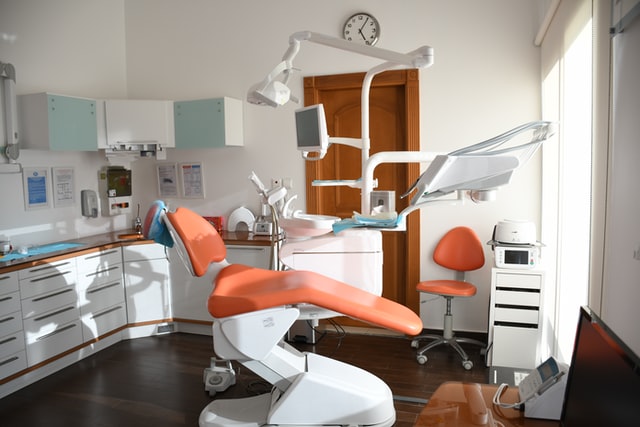
This may come as a surprise to some but there are many dentists that are happy to go through their entire career as an associate dentist without the aspiration to buy or start-up their own dental practice. However, with the rise of the pandemic and the consequences that many dental associates have experienced as a result, there are now many dental associates realising that there are so many benefits to opening their own private practice ,without the NHS contracts weighing them down.
Being your own boss and working for yourself can be incredibly hard and it comes with a lot of challenges that you may have never even anticipated. After being in the game for over 20 years, Samera has got you covered. We have a few costs you need to anticipate that are often forgotten about or overlooked when people decide to start their own dental practice.
Click here to find out more about secondary sources of finance.
Staff Costs in a Dental Practice
One of the main costs many do not consider are the staffing costs. Most dental practices will feature different types of specialist dentists, often including an orthodontist who can typically earn between £60,000 – ££80,000 per year. In order to grow clientele you may also want to employ a separate hygienist, who will also retain a high-earning salary.
Although you may be aware of the costs of each of the dentists you may be employing, it is also very important to factor in any other staff members you will need. Each dentist will usually require at least one assistant – this will be highly dependent on how many dentists you have working in your practice. A receptionist will also be necessary and depending on the size of your practice, you may have to hire two receptionists.
Staffing costs themselves are a huge cost for any practice, however, what you need to take into account is that when your practice becomes more successful, your staffing costs will rise as a result. It is especially important that these costs are accounted for and managed properly when you are starting out.
Click here to read more about building a great team.
Finance costs
Finance costs need to be controlled and reviewed to ensure that you are getting the best deal on the market. Some lenders charge 3.75% above base rate, while others may charge 2.5% above base rate. It is important to shop around the market to see these differences, as the difference between these percentages over the course of even one year can be substantial.
If you have started a squat practice, costs may be even higher. However, once established, these costs can be reduced by a well thought out refinancing package.
Managing cash flow
Buying equipment is a huge strain on many dental practices and sometimes buying the necessary equipment out of cash flow (or working capital) may seem to be saving on any long-term loans or interest. However, buying these things straight from your cash flow can create a big strain on the cash available to the business.
Should anything unfortunate happen (e.g. Covid-19) you need to ensure that your business has the necessary reserves to save itself. Always consider whether to buy with cash or finance over the longer term. There are many financing options available to you should you need any information of what type of finance would be best for your situation.
Click here to find out more about managing cash flow.
Rent and business rates
If you are paying rent for your dental practice that can often be a big cost for you. In some areas of the country it would be cheaper to buy the freehold if possible, so it is always worth asking. It is also important to note that lease payments rise on a very regular basis, thereby increasing your costs further.
Equipment
This one is a fairly obvious cost, but it can take its toll on your dental practice. You will need necessary office equipment such as a computer, desk and chairs for your reception area. You may even want to furnish your waiting room, which can be an expense you need to factor in.
However, your largest expense will come from purchasing the necessary dental equipment for your surgeries. A dental chair, lighting, dental tools, X-ray equipment, anaesthetics, sterilising equipment and even consumables such as mouthwash and toothpaste are all part of equipment costs that you need to consider.

Contact us to find out more
These do not all have to be bought outright all at once. There are many financing options that are lenient and can help your dental practice in the long run. Although you may factor in the costs of financing all the equipment you will need, you also need to factor in the costs that are included in keeping all your equipment up-to-date and maintained. You will also need to factor in the costs of lighting, heating and cleaning services of your dental practice.
Click here to find out more about asset finance for dentists
Although these costs will be a considerable amount, they are essential when it comes to setting up and running a functional and successful dental practice.
Overall, the costs of running a dental practice are high, like many other medical healthcare practices. Often with dental businesses it can take some time and hard work before you start to see increasing profits. However, these profits are more than worth the costs of running your own dental practice and being in charge of your own business.
Dental practice financing in the UK
Buying, starting or growing your own dental practice is not a cheap process. Whether it is for property, assets or acquisition, the chances are that you will need to raise finance to build your dream practice.
You will be able to get funding from many different mainstream lenders to finance a dental surgery, but it is imperative that you show good management of income, evidence of savings and prove your credibility with those lenders.
Acquiring a dental practice involves a large financial investment, so a comprehensive due diligence process is absolutely essential. It is also important to work with specialists along the way such as a dental solicitor, a commercial financial broker, and professional dental accountants, in order to minimise any risks.
Click here to listen to our podcast episode on financing a squat practice.
Whether your dental practice is NHS or private, we can help secure the tailored finance your business needs to grow and succeed.
Mortgages for dentists
We can help you find the right mortgage product to suit your needs. Whether you are re-mortgaging or buying a new site.
Click here to find out more about commercial mortgages.
Acquisition finance
Acquisition financing will allow you to gain capital specifically for the purpose of buying your new dental practice. We can guide you through the best cost effective ways to do this and mentor you through how it will affect you and your business.
Click here to find out more about acquisition finance.
Asset finance
Dental equipment is expensive, you need to think about all aspects that you will need to finance such as chairs, X-ray machines, you name it, it all comes with quite a hefty price tag. Asset finance assists you with spreading the cost of repayment of equipment over time.
This eases the financial stress and allows you to avoid the need to buy the equipment that you desperately need outright. Asset finance means that your practice can continue to deliver the highest quality of dental services without compromising on price.
Click here to find out more about asset finance.
Business loans
There are many reasons as to why a business loan would be a great financing option for you. These types of loans are one of the best ways to secure working capital. You will need this type of capital to keep day to day operations consistent in your practice. There are two types of business loans available to you, secured and unsecured. Secured is a longer term lending based on the security of your business assets or unsecured which is a flexible, alternative finance solution, usually for smaller amounts.
Click here to find out more about working capital.
Best banks for dental practice loans
Unfortunately, there is no easy answer to this question. It all comes down to what deals or terms work best for you and your business. This is why it is always best to use a professional who is qualified in handling the unique aspects of a dental practice sale and/or purchase.
Most of the high street banks all lend to dentists, but their offerings and terms vary greatly depending on what your requirements are.
For instance, whilst one bank may offer a lower interest rate, they may require more security than another. In addition, new challenger banks are interested in providing loans to dentists, so they are another source to consider for good terms.
To ensure you get the best deal available when you require finance, using Samera Finance to help you navigate the best loan terms available is highly recommended.
Our team of finance professionals are perfectly positioned to help you understand your financial requirements and provide a selection of finance offers for you.
Click here to read more about finance options for dentists.
Work with a commercial finance broker
In the same way as it’s important to work with expert dental accountants and dental solicitors when financing and buying an initial dental practice, it’s vital to do so when growth and further purchasing is required.
Never forget that a dental surgery owner’s talents lie with running the practice itself and not with accounting or legal implications. It’s better to work with experts to deal with these factors. We’ve worked on these aspects of scaling a dental practice with clients on many occasions and it’s made the process a lot simpler for them.
When you use a commercial finance broker like Samera, you tap into our decade’s of experience in the healthcare finance market. Remember, it’s not just about finding a deal for you, it’s about everything else the broker will do for you.
A broker can negotiate much more affectively, since we know the different structures and formats of deals and applications that lenders look for.
We are completely independent of any one lender. We will approach several lenders to find you the right finance solution for your business.
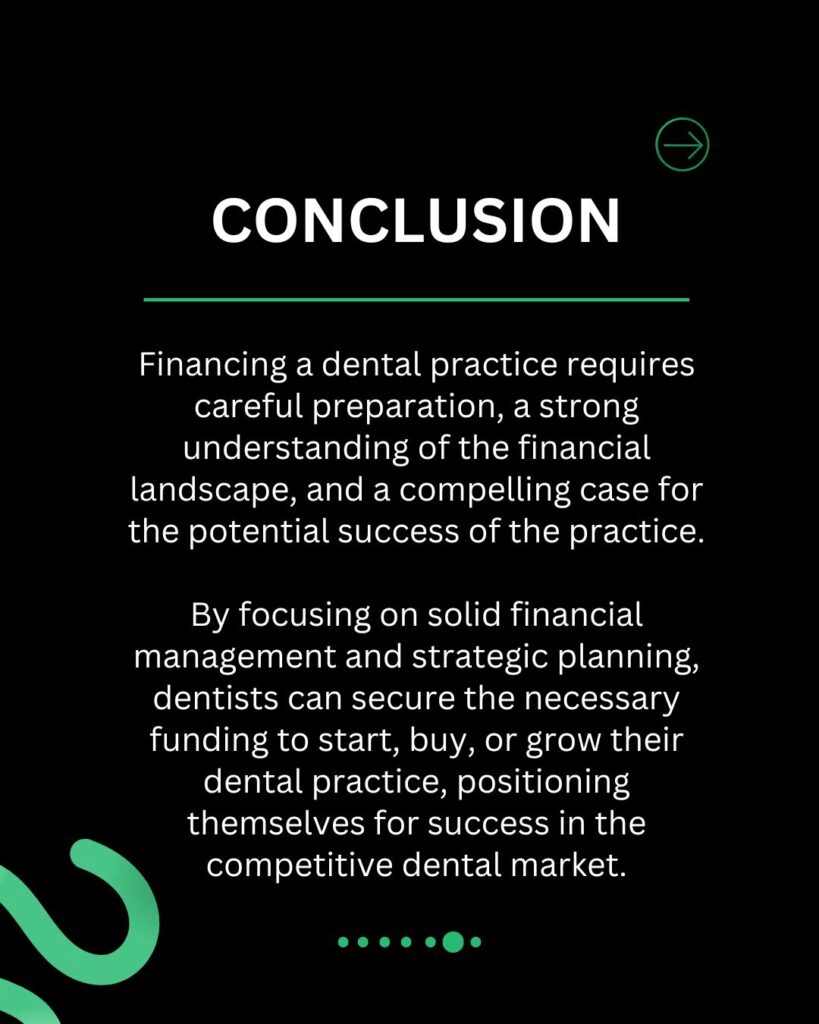
Click here to read our 5 reasons to use a commercial finance broker.
Our Expert Opinion
“There are so many options to borrow money on various terms these days which can be confusing. The cheapest rate is often not the best deal available, As loan to value, term of loan, arrangement fees, exit fees and legal fees are all things that need to be considered. That’s why now more than ever it’s essential to have a commercial finance broker assist to get the best deal, not just the best rate.”

Business Loans for Dentists
We’ve been helping to fund the future of the UK’s dentists for 20 years and our team are made up of former bankers with decades of experience and contacts in the UK’s healthcare lending sector.
You can find out more about working with Samera Finance and the financial services we offer by booking a free consultation with one of the Samera team at a time that suits you (including evenings) or by reading more about our financial services at the links below.
Dental Practice Finance: Further Information
For more information on raising finance for your dental practice, including more articles, videos and webinars check out our Learning Centre here, full of articles an webinars like our How to Guide on Financing a Dental Practice.
Make sure you never miss any of our articles, webinars, videos or events by following us on Facebook, LinkedIn, YouTube and Instagram.
Nigel Crossman
Head of Commercial Finance
Nigel is a former banker and head of commercial finance at Samera. He specialises in raising finance, negotiating deals and structuring finance applications for healthcare businesses.
